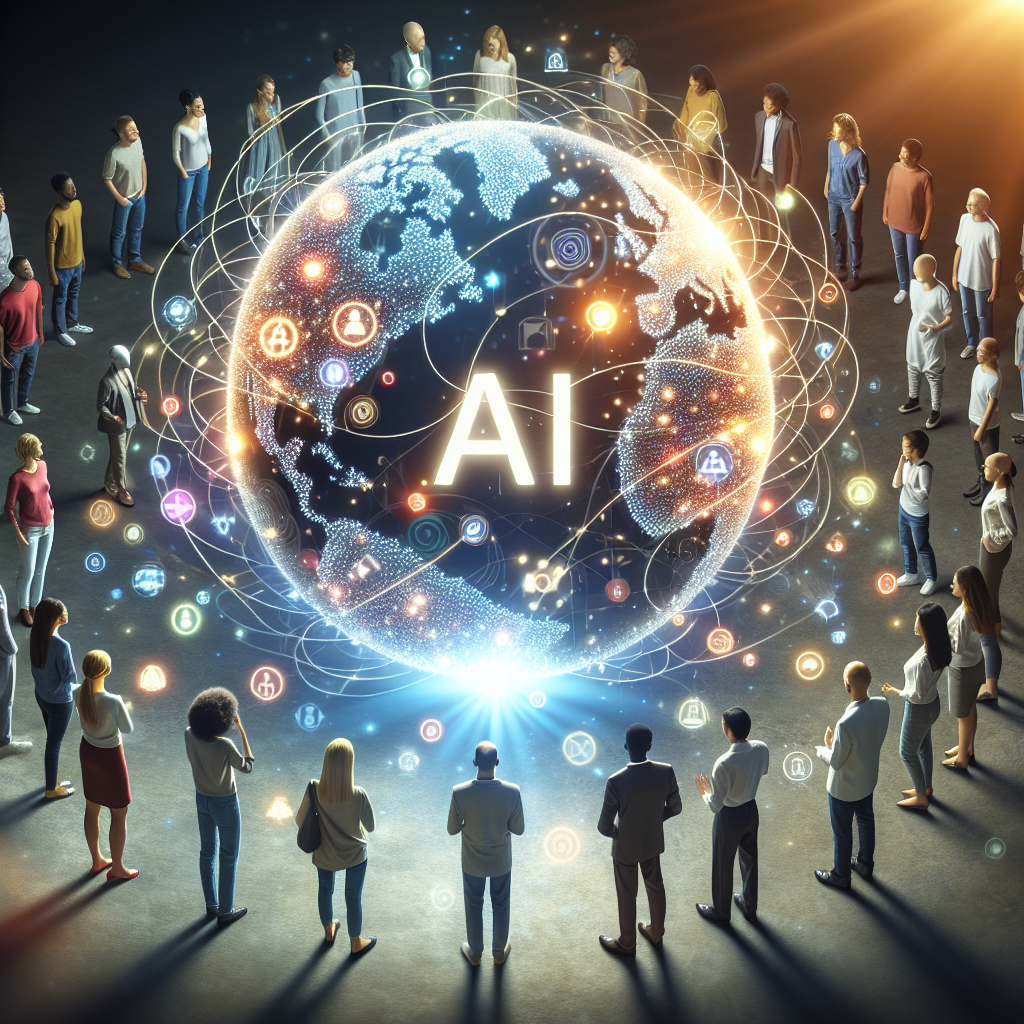In recent years, artificial intelligence (AI) has become more prevalent in our daily lives, from virtual assistants like Siri and Alexa to self-driving cars and personalized recommendations on streaming platforms. However, the development and use of AI have largely been restricted to a few tech giants and research institutions, leading to concerns about the concentration of power and resources in the hands of a select few.
The concept of democratizing AI aims to address these concerns by making AI technology more accessible and inclusive, empowering individuals and organizations of all sizes to leverage the benefits of AI in their work and everyday lives. By democratizing AI, we can ensure that the benefits of this technology are shared more widely and that everyone has the opportunity to participate in shaping its future.
Empowering the Masses with AI
One of the key goals of democratizing AI is to empower individuals and organizations with limited resources to access and use AI technology. This can be achieved through a variety of means, such as providing access to open-source AI tools and libraries, offering affordable AI training programs, and developing user-friendly AI platforms that do not require advanced technical knowledge to use.
For example, Google’s TensorFlow and Facebook’s PyTorch are popular open-source AI frameworks that allow developers to build and deploy AI models without having to start from scratch. These frameworks provide a wealth of resources and documentation to help users get started with AI development, making it easier for individuals and organizations to incorporate AI into their projects.
In addition to open-source tools, there are also a growing number of online courses and training programs that offer instruction in AI and machine learning. Platforms like Coursera, Udacity, and edX provide affordable courses taught by experts in the field, allowing individuals to learn the skills they need to work with AI technology.
Furthermore, companies like Microsoft and IBM are developing AI platforms that are designed to be accessible to users with varying levels of technical expertise. These platforms offer pre-built AI models and tools that can be easily customized and integrated into existing applications, making it easier for organizations to incorporate AI into their business processes.
By providing these resources and tools, democratizing AI can enable individuals and organizations to harness the power of AI technology to solve complex problems, automate repetitive tasks, and make more informed decisions. In doing so, democratizing AI can help level the playing field and empower a broader range of people to participate in the AI revolution.
Challenges and Considerations
While democratizing AI holds great promise for expanding access to AI technology, there are also challenges and considerations that must be addressed. One of the key challenges is ensuring that AI technology is used responsibly and ethically, particularly when it comes to issues like bias and privacy.
AI systems are only as good as the data they are trained on, and if that data is biased or incomplete, it can lead to discriminatory outcomes. For example, a facial recognition system that is trained primarily on data from white faces may not perform as well on faces of other races, leading to biased results. To address this issue, developers and researchers must be vigilant in ensuring that their AI systems are trained on diverse and representative data sets.
Privacy is another important consideration when it comes to democratizing AI. As AI technology becomes more widespread, there is a growing concern about the collection and use of personal data for training AI models. To protect individuals’ privacy, developers must be transparent about how data is collected and used, and implement robust security measures to safeguard sensitive information.
In addition to these challenges, there are also concerns about the impact of AI on the job market and the economy. As AI technology becomes more advanced, there is a risk that it could automate many jobs, leading to widespread unemployment and economic disruption. To mitigate these risks, policymakers and businesses must work together to develop strategies for reskilling workers and creating new job opportunities in the AI economy.
FAQs
Q: What is democratizing AI?
A: Democratizing AI is the process of making AI technology more accessible and inclusive, empowering individuals and organizations of all sizes to leverage the benefits of AI in their work and everyday lives.
Q: How can democratizing AI benefit society?
A: By democratizing AI, we can ensure that the benefits of this technology are shared more widely and that everyone has the opportunity to participate in shaping its future. This can lead to more innovation, economic growth, and social progress.
Q: What are some examples of democratizing AI initiatives?
A: Examples of democratizing AI initiatives include providing access to open-source AI tools and libraries, offering affordable AI training programs, and developing user-friendly AI platforms that do not require advanced technical knowledge to use.
Q: What are some challenges of democratizing AI?
A: Some challenges of democratizing AI include ensuring that AI technology is used responsibly and ethically, addressing issues of bias and privacy, and mitigating the impact of AI on the job market and the economy.
Q: How can individuals and organizations get started with AI technology?
A: Individuals and organizations can get started with AI technology by exploring open-source AI tools and libraries, taking online courses and training programs, and using user-friendly AI platforms that do not require advanced technical knowledge to use.

